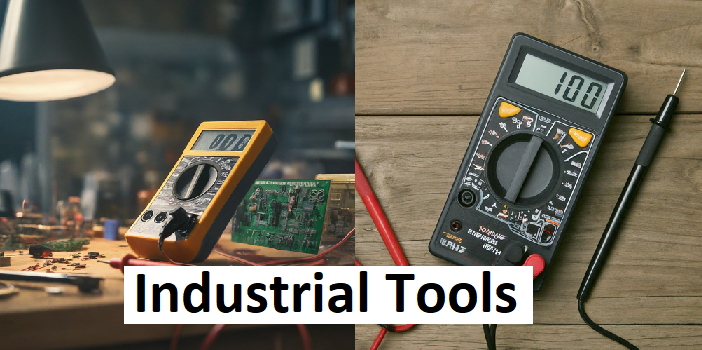Industrial Tools: The Backbone of Modern Manufacturing – Industrial Tools: The Backbone of Modern Manufacturing is a comprehensive article that explores the various types of industrial tools, their importance in manufacturing processes, and the latest trends in the industry. Discover how these essential tools drive efficiency, precision, and innovation in modern production.

Industrial tools, the unsung heroes of manufacturing, are the essential equipment and machinery that power the production processes across various industries. From heavy manufacturing to precision engineering, these tools play a pivotal role in shaping the products we use daily.
Types of Industrial Tools
Industrial tools can be broadly categorized into several types:
- Hand Tools: These are portable tools used for manual tasks. Examples include:
- Wrenches
- Screwdrivers
- Hammers
- Pliers
- Measuring tools (calipers, micrometers)
- Power Tools: These tools are powered by electricity, compressed air, or hydraulics. Examples include:
- Drills
- Saws
- Grinders
- Sanders
- Impact wrenches
- Machine Tools: These are large, stationary machines used for shaping and machining materials. Examples include:
- Lathes
- Milling machines
- Drilling machines
- Grinding machines
- Press machines
- Specialized Tools: These tools are designed for specific industries or applications. Examples include:
- Welding equipment
- Testing instruments (oscilloscopes, multimeters)
- Robotics
- 3D printers
- CNC (Computer Numerical Control) machines
Importance of Industrial Tools
Industrial tools are essential for several reasons:
- Efficiency: They increase productivity by automating tasks and reducing manual labor.
- Precision: They enable the production of high-quality products with precise dimensions and tolerances.
- Safety: They minimize the risk of accidents and injuries by providing safe working conditions.
- Innovation: They facilitate the development of new products and technologies.
- Versatility: They can be used in a wide range of industries and applications.
Trends in Industrial Tools
The industrial tools industry is constantly evolving, with new technologies and trends emerging. Some of the current trends include:
- Automation: The increasing adoption of robotics and automation systems is transforming manufacturing processes.
- Smart Tools: Connected tools with built-in sensors and data analytics are becoming more common.
- Sustainability: There is a growing emphasis on energy-efficient and environmentally friendly tools.
- Additive Manufacturing: 3D printing and other additive manufacturing techniques are gaining popularity for prototyping and production.
- IoT Integration: Industrial tools are being integrated with the Internet of Things (IoT) to enable remote monitoring, data analysis, and predictive maintenance.
Future of Industrial Tools
As technology continues to advance, we can expect to see even more innovative and sophisticated industrial tools in the future. Some potential developments include:
- Artificial Intelligence (AI): AI-powered tools that can learn and adapt to changing conditions.
- Augmented Reality (AR): AR-enabled tools that can provide real-time information and guidance.
- Nanotechnology: Tools that operate at the nanoscale for precise and intricate tasks.
- Biomimetics: Tools inspired by biological systems for enhanced performance and efficiency.
In conclusion, industrial tools are the backbone of modern manufacturing. They empower industries to produce a wide range of products efficiently, precisely, and safely. As technology continues to evolve, we can expect to see even more innovative and sophisticated tools that will shape the future of manufacturing.
Home | Join us on Facebook, Twitter, YouTube, Instagram, Quora, Reddit, LinkedIn, Pintereset, Blogger.